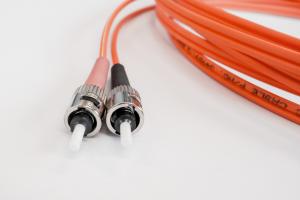Openreach extends FTTC broadband line trial
 Openreach has announced that it will be conducting a trial of Seamless Rate Adaptation (SRA) technology on Fibre-to-the-Cabinet across the UK based on superfast broadband ISP lines with speeds of 40-80 Mbps.
Openreach has announced that it will be conducting a trial of Seamless Rate Adaptation (SRA) technology on Fibre-to-the-Cabinet across the UK based on superfast broadband ISP lines with speeds of 40-80 Mbps.
The success of such trials could improve service stability with effective speed variability.
SRA refers to reconfiguring the total data rate by modifying the framing parameters and the bits and fine gains parameters. Where the noise condition improves then SRA can be used to slowly increase the data rate and potentially take it back all the way up to where it was before the sudden noise impacted the line.
Not a new technology to Openreach, SRA is a standard part of the latest G.fast standard.
Between 2014 and 2015, SRA testing had also been completed with VDSL2 Vectoring technology so as to incorporate it into Openreach's Long Reach VDSL tests; however these were later shelved.
A statement released by Openreach said: “This briefing is to inform all CPs that following the successful proof of concept earlier this year we will be trialling Seamless Rate Adaptation (SRA) on a larger volume of lines.
We’ve published a briefing for CPs relating to SRA, which will vary the speed of a line as noise margin changes reducing the propensity to retrain, whereas today on NGA1, if the noise margin drops beyond a certain threshold, the line will retrain. Openreach will be running a large-scale trial to prove the benefits of this change.”
Earlier this year, Openreach had decided to try and implement SRA on its own and this ran for several months, after which, the operator reviewed the impact and now has decided to engage in greater testing.
It is believed that larger trials are likely to target around 100,000 lines and expected to run until the start of Spring 2019.







